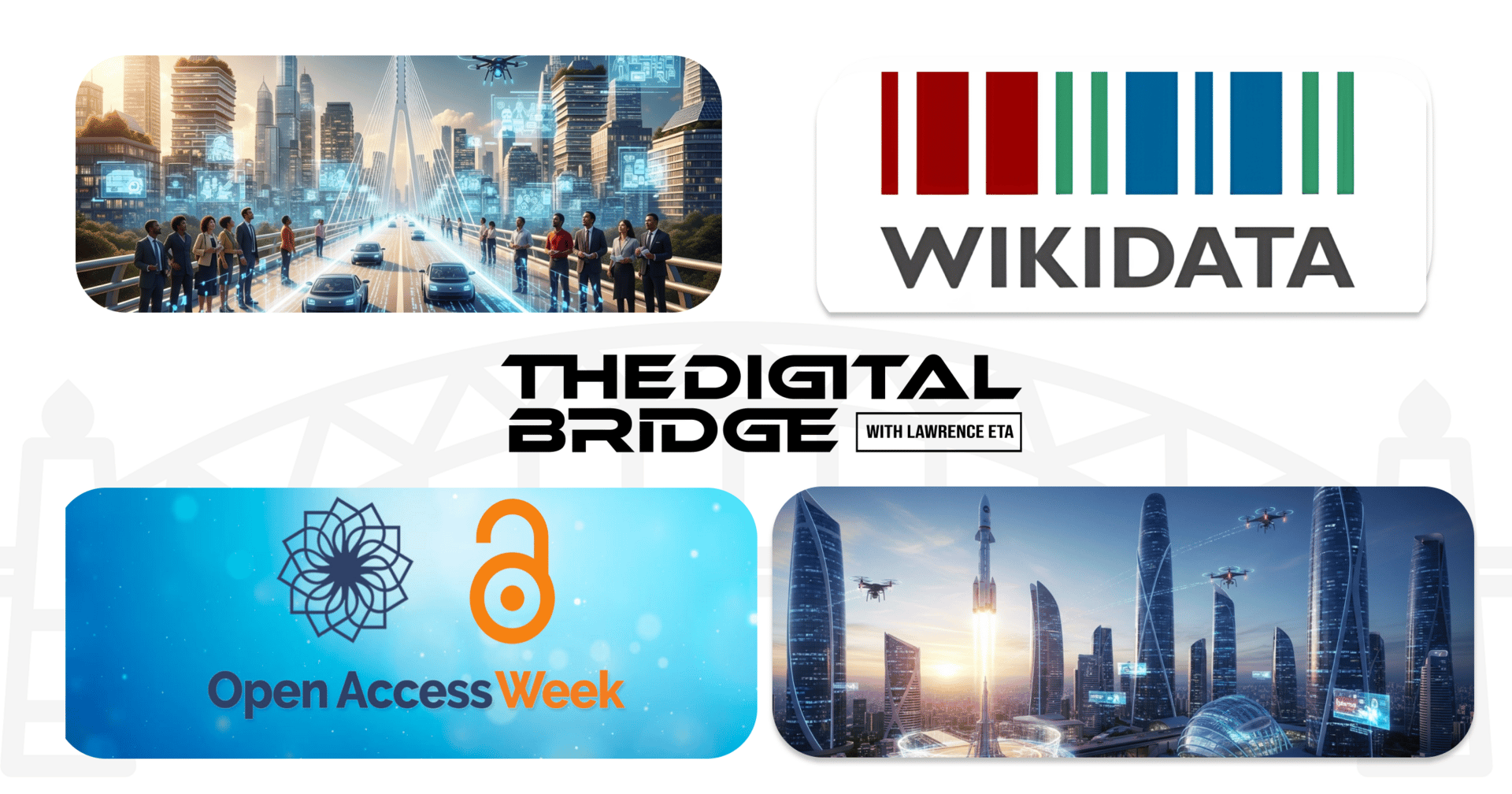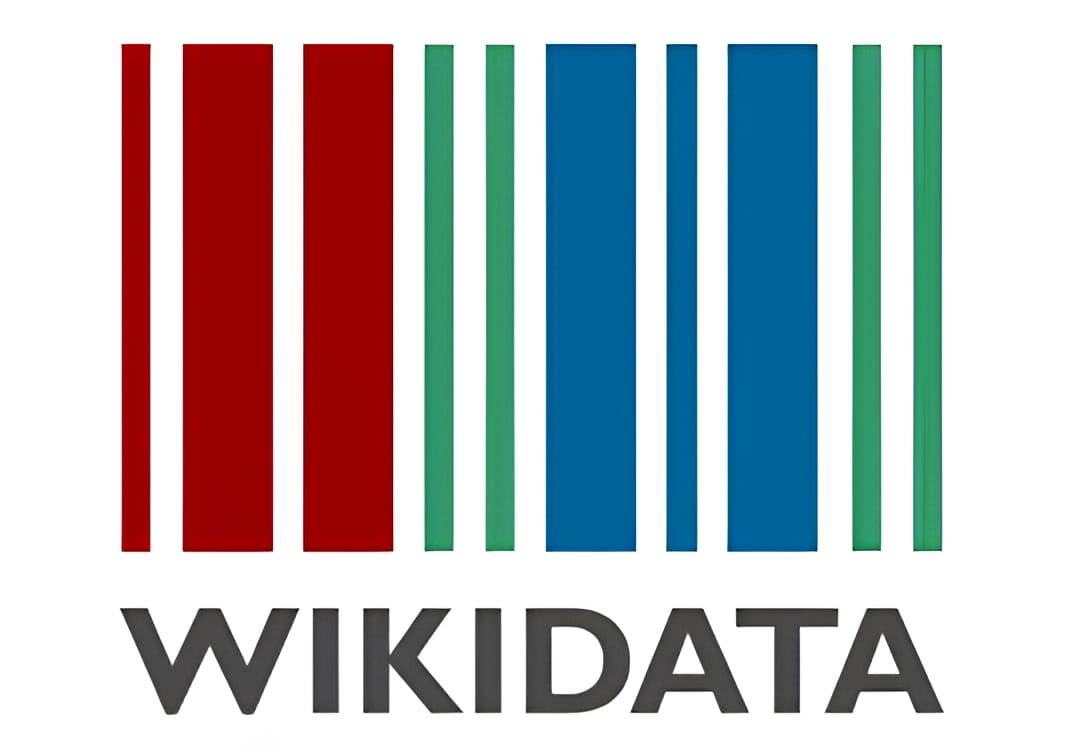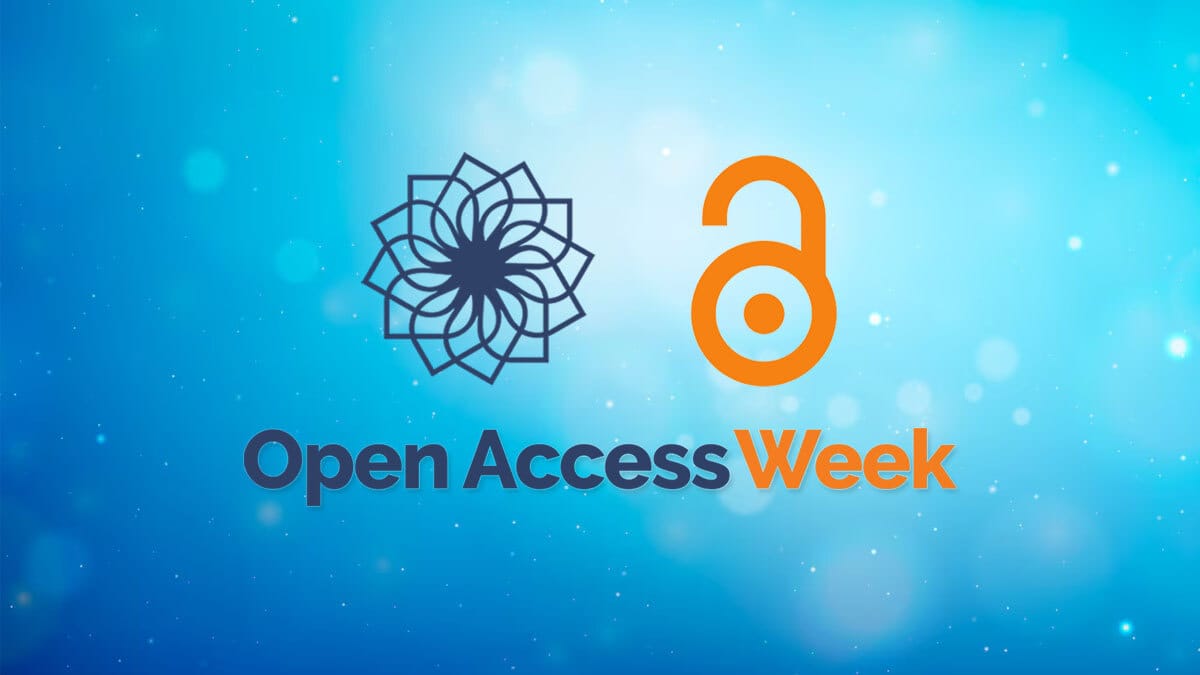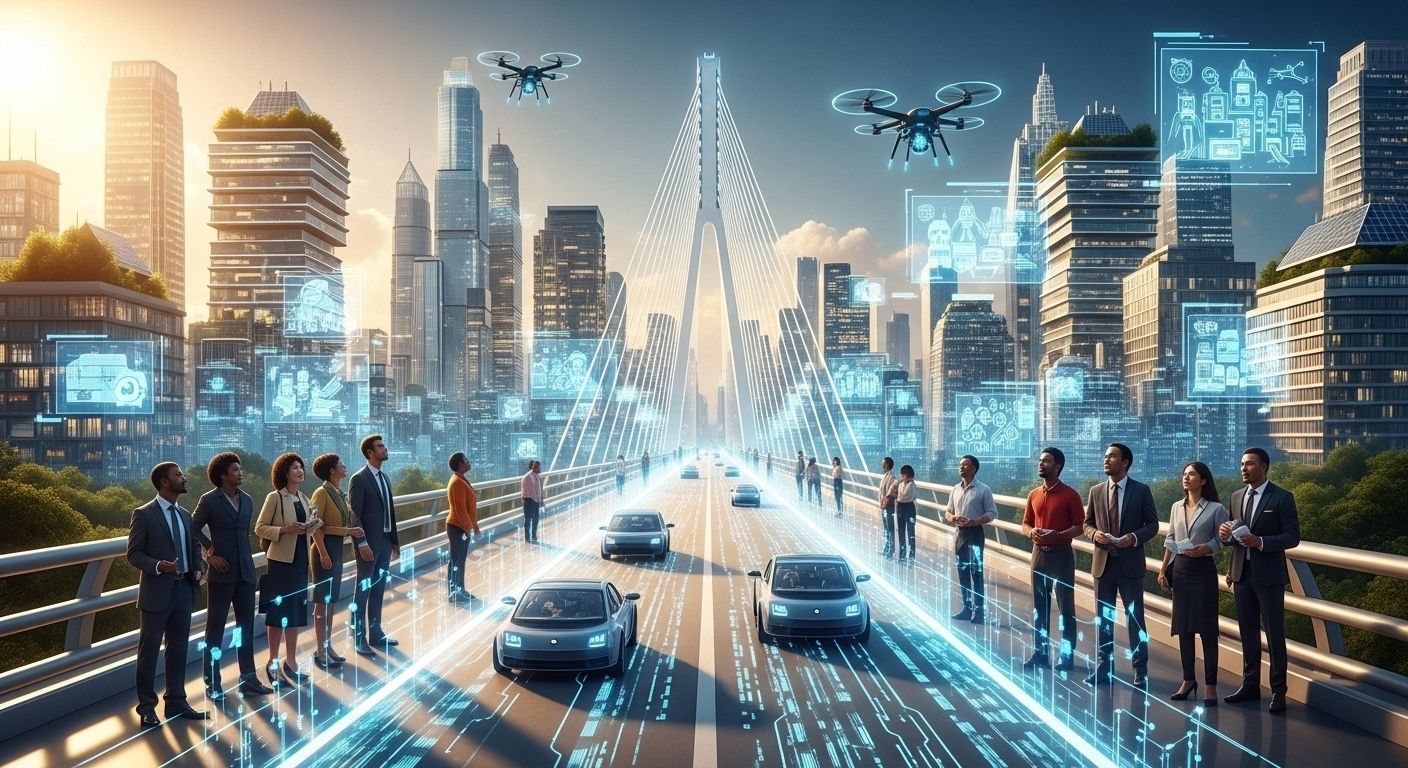- The Digital Bridge with Lawrence Eta
- Posts
- Democratizing Knowledge: The Power of Open Access in 2025
Democratizing Knowledge: The Power of Open Access in 2025
Tech News, Global Digital Transformation, Thought Leadership and Current Trends


The Gold standard for AI news
AI keeps coming up at work, but you still don't get it?
That's exactly why 1M+ professionals working at Google, Meta, and OpenAI read Superhuman AI daily.
Here's what you get:
Daily AI news that matters for your career - Filtered from 1000s of sources so you know what affects your industry.
Step-by-step tutorials you can use immediately - Real prompts and workflows that solve actual business problems.
New AI tools tested and reviewed - We try everything to deliver tools that drive real results.
All in just 3 minutes a day
When knowledge is free, progress accelerates. How open access is rewriting the rules of innovation, trust and inclusion, from academia to governments and industry.
Access to knowledge is no longer a niche academic ideal, it is a strategic imperative.
In a world where digital transformation, AI, and global competition converge, who holds the data, and who can read it, matters more than ever.
Open access has evolved from a publishing principle into a catalyst for resilience, innovation, and collective intelligence. It now defines how nations compete, how organizations build trust, and how societies progress.
The question now isn’t whether we’ll adapt. It’s how wisely, and how fast.
This week’s edition covers:
AI Infrastructure Investment Hits $375B : A Global spending surge highlights the need for sustainable, distributed, and inclusive compute for AI (UBS, 14 October 2025).
Wikidata Surpasses 1.3 Billion Entries: Open-data growth strengthens the knowledge commons, enabling AI, research, and public access at scale (Wikidata Foundation, 15 October 2025).
Open Access Week 2025 - "Who Owns Our Knowledge?": Institutions worldwide spotlight equitable knowledge sharing and the need for participatory ecosystems ( 20-26 October 2025).
Bridging The Knowledge Gap: Open-access proliferation still requires translation, contextualization, and capacity-building to ensure real-world impact (EIFL Study, 16 October 2025).
AI GLOBAL INVESMENT
AI Infrastructure Investment Hits $375B

Global investment in AI infrastructure is projected to reach an estimated US$375 billion in 2025, according to a UBS report published on 14 October 2025. This growth reflects both the increasing demand for computational power to train advanced AI models and the need to support large-scale simulations in sectors ranging from healthcare and finance to climate science.
The core components driving this surge include high-performance data centers, specialized AI chips, and cloud-based distributed computing networks. These systems allow for faster model training, real-time analytics, and scalable deployment of AI solutions across industries.
However, these developments also carry strategic risks. Concentrating infrastructure in select regions with high-resource capabilities can create bottlenecks, limit equitable access, and concentrate power over knowledge and AI capabilities in a small number of organizations or geographies.
Technology often outpaces access, distributed systems matter. If AI innovation remains concentrated in select locales, then open access becomes a rhetorical ideal rather than a reality. Democratizing knowledge therefore means building compute, data and access infrastructure that is global, inclusive and sustainable.
Who Do We Trust When Everyone Has Access?
New research in Humanities and Social Sciences Communications highlights a paradox: as AI systems grant broad knowledge access, they also blur the lines of expertise and trust.
What leaders need to know:
Open access is insufficient without contextualized expertise. Institutions must build frameworks that maintain validation and trust even as knowledge becomes widely available. For policy-makers and educators, the challenge is not just access; but meaningful access.
Leaders must view AI infrastructure as not only a technical requirement but a governance challenge. Prioritizing sustainable, distributed, and inclusive systems ensures AI serves broader societal and economic goals rather than reinforcing existing inequalities. Open access in AI, therefore, is a matter of both innovation strategy and ethical stewardship.
WIKIDATA ENTRIES
Wikidata Surpasses 1.3 Billion Entries

As of 15 October 2025, Wikidata, the global collaborative knowledge base, has surpassed 1.3 billion structured entries, positioning it as a foundational resource for AI systems, research institutions, and public knowledge platforms.
The core components of this milestone include structured data entries, interlinked knowledge graphs, and API access for developers and researchers. These allow information to flow across platforms; Wikipedia, enterprise AI models, and public databases, creating a shared knowledge infrastructure that scales globally.
The strategic implications are profound: a structured and interconnected knowledge base democratizes access, enables real-time decision-making, and supports innovation ecosystems that are no longer confined by proprietary silos. Governments, NGOs, and private enterprises can leverage this commons to accelerate evidence-based policy, research, and commercial development.
Open-Data Infrastructure as the Knowledge Commons
Its growth signals a shift from locked silos to shared knowledge infrastructure. This evolution marks a new era where data and knowledge can serve enterprises, citizens and governments alike.
When knowledge graphs and open-data infrastructure become global utilities, institution from governments to start-ups can build on a shared foundation. The shift from proprietary data silos to open knowledge commons marks a new era in transformation strategy.
Knowledge that is organized, standardized, and openly shared multiplies innovation potential. Entities that integrate with the knowledge commons gain agility, credibility, and competitive advantage in an increasingly data-driven world.
OPEN ACCESS WEEK
Open Access Week 2025: “Who Owns Our Knowledge”

20 - 26 October 2025 marks Open Access Week, themed “Who Owns Our Knowledge?”, prompting global reflection on knowledge ownership, dissemination, and equitable access. Universities, libraries, and research institutions will engage in discussions, workshops, and outreach programs to explore how scholarly outputs can reach the widest possible audience.
Core components highlighted during the week will likely include open repositories, digital libraries, community engagement programs, and knowledge translation frameworks. Academic leaders stressed that simply providing access is insufficient; guidance, mentorship, and actionable frameworks are essential for meaningful knowledge use.
The week will underscore that open access is a lever for innovation, public accountability, and societal progress. Policymakers and industry stakeholders were reminded that the strategic value of knowledge lies in its usability, not just its availability.
Expertise Without Access is Inequity
As knowledge becomes more easily available online, complexity remains its gatekeeper. A recent research article (September 2025) observes that despite open-access materials proliferating, understanding remains uneven, particularly in under-represented geographies. Simply unlocking content does not guarantee insight or impact.
Successful open access initiatives pair availability with usability. Societies that ensure both access and capacity to apply knowledge cultivate more informed, innovative, and resilient communities. Democratization of knowledge demands more than portals; it demands participatory ecosystems.
THE KNOWLEDGE GAP
Bridging the Knowledge Gap

A study released on 16 October 2025 by EIFL revealed persistent gaps in the practical application of open-access research. Teachers, public-health workers, and community organizations often encounter barriers in discovering, interpreting, or leveraging open-access resources.
The core components of this challenge include data literacy, localized content translation, and contextualized guidance. Without these supports, open-access content remains underutilized, and its potential impact on policy, education, and public services is diminished.
Addressing this gap requires capacity-building programs, stakeholder engagement, and knowledge translation mechanisms that ensure open-access research leads to tangible outcomes. Empowering local actors to interpret and apply research is critical for creating participatory knowledge ecosystems.
Greater inclusion therefore requires not just access to research, but outcomes from research. The frontier of knowledge democratization lies not in unlocking content, but in unlocking capability.
Unlocking knowledge is not solely a technological challenge, it demands investment in human capability, translation, and community engagement. Leaders who embed these components into open-access initiatives amplify innovation, equity, and societal impact.
Accelerated decentralisation is not fragmentation; it is resilience.
The question isn’t “Can we access it?” but “Who gets to benefit from it?”
Open access is not an altruistic after-thought: it is a governance, innovation and resilience lever. In 2025 and beyond, leaders must treat knowledge as a strategic asset; not just in what they consume, but how they distribute and embed. The next wave of progress will be led by organisations that not only unlock knowledge but build systems that empower, validate and trust. In the age of AI, those who control access may no longer lead. Those who enable and embed access will cultivate understanding will shape the next wave of digital progress.
From Toronto to Nairobi, emerging hubs are redefining the geography of innovation. As capital, connectivity, and education spread beyond traditional centers, local ecosystems are becoming global accelerators of change.
Knowledge democratisation means every region can be a source of innovation.
Don’t miss out on future updates, follow me on social media for the latest news, behind-the-scenes content, and more:
Twitter: Click here
Facebook: Click here
Instagram: Click here
LinkedIn: Click here
Enjoyed this newsletter? Share it with friends and help us spread the word!
Until next time, happy reading!
JOIN THE COMMUNITY
The Bridging Worlds Book
Discover Bridging Worlds, a thought-provoking book on technology, leadership, and public service. Explore Lawrence’s insights on how technology is reshaping the landscape and the core principles of effective leadership in the digital age.
Order your copy today and explore the future of leadership and technology.
SHARE YOUR THOUGHTS
We value your feedback!
Your thoughts and opinions help us improve our newsletter. Please take a moment to let us know what you think.
How would you rate this newsletter? |


Reply